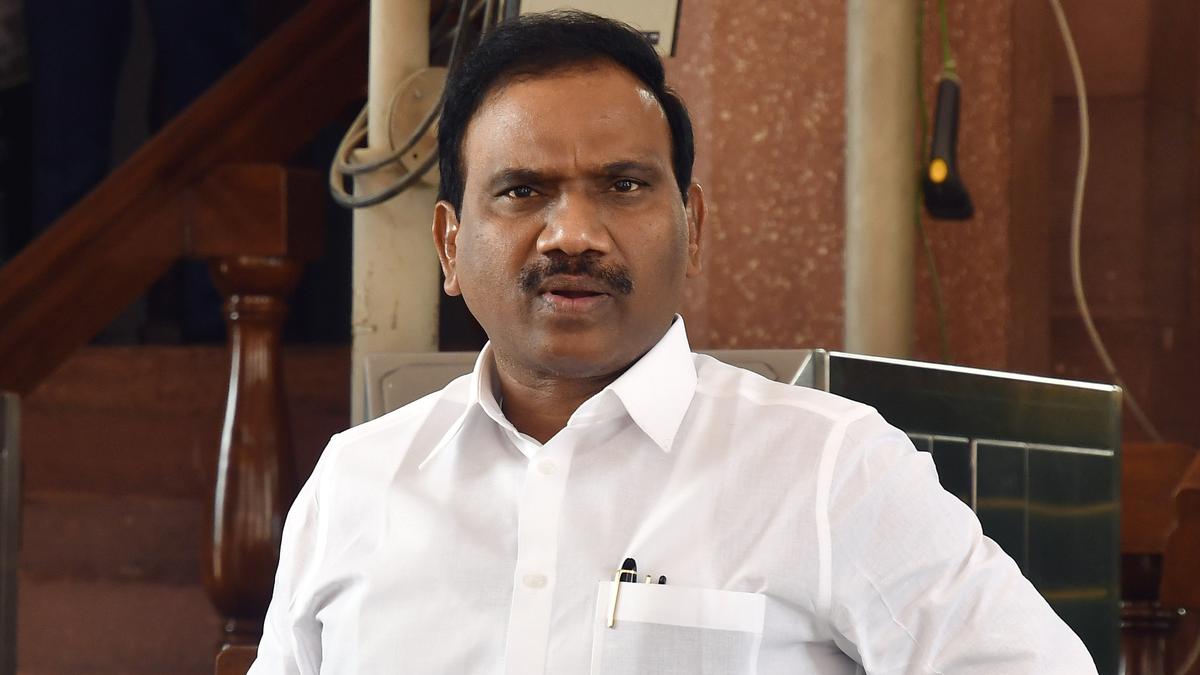
DMK MP A. Raja compares Sanatana Dharma with HIV
The Hindu
MP Raja said Sanatana Dharma is like HIV, needs to be destroyed. People in North India are looking to DMK and Dravidian parties for "cure". Raja supported Minister Udhayanidhi Stalin's remarks comparing Sanatana Dharma to dengue and malaria. He said it is dangerous and must be rooted out. DMK functionaries and Tourism Minister present at meeting.
Nilgiris Lok Sabha MP A. Raja said that Sanatana Dharma was like the human immunodeficiency virus (HIV) that needed to be destroyed.
In a meeting with DMK booth agents in Udhagamandalam on September 7, Mr. Raja said that people in North India had become aware of the need to defeat Hindutva forces, and were looking towards the DMK and Dravidian parties for “the cure.”
Also Read | Udhayanidhi Stalin’s remarks require proper response, PM Modi tells Ministers at informal meeting
He said that despite the “barbarous” sexual assault of two Kuki women in Manipur, Assam Chief Minister Himanta Biswa Sarma had not condemned the incident while Home Minister Amit Shah addressed the Parliament justifying it. “This is how the country is going. India is burning and there is no safety for anyone,” he said.
Mr. Raja said that the DMK did not interfere in the religious beliefs of people, but only opposed the use of religion by the government to inflict violence on minorities. “Everyone is ready to kill the poisonous snake, but nobody has the cure to the bite from the snake, except Periyar, Anna, and the DMK,” said Mr. Raja.
“This is the reason people in North India don’t know what Sanatana Dharma is, while we do,” said Mr. Raja, adding that he supported Minister for Youth Welfare and Sports Development, Udhayanidhi Stalin’s remarks comparing Sanatana Dharma with dengue and malaria.

“Writing, in general, is a very solitary process,” says Yauvanika Chopra, Associate Director at The New India Foundation (NIF), which, earlier this year, announced the 12th edition of its NIF Book Fellowships for research and scholarship about Indian history after Independence. While authors, in general, are built for it, it can still get very lonely, says Chopra, pointing out that the fellowship’s community support is as valuable as the monetary benefits it offers. “There is a solid community of NIF fellows, trustees, language experts, jury members, all of whom are incredibly competent,” she says. “They really help make authors feel supported from manuscript to publication, so you never feel like you’re struggling through isolation.”

Several principals of government and private schools in Delhi on Tuesday said the Directorate of Education (DoE) circular from a day earlier, directing schools to conduct classes in ‘hybrid’ mode, had caused confusion regarding day-to-day operations as they did not know how many students would return to school from Wednesday and how would teachers instruct in two modes — online and in person — at once. The DoE circular on Monday had also stated that the option to “exercise online mode of education, wherever available, shall vest with the students and their guardians”. Several schoolteachers also expressed confusion regarding the DoE order. A government schoolteacher said he was unsure of how to cope with the resumption of physical classes, given that the order directing government offices to ensure that 50% of the employees work from home is still in place. On Monday, the Commission for Air Quality Management in the National Capital Region and Adjoining Areas (CAQM) had, on the orders of the Supreme Court, directed schools in Delhi-NCR to shift classes to the hybrid mode, following which the DoE had issued the circular. The court had urged the Centre’s pollution watchdog to consider restarting physical classes due to many students missing out on the mid-day meals and lacking the necessary means to attend classes online. The CAQM had, on November 20, asked schools in Delhi-NCR to shift to the online mode of teaching.









